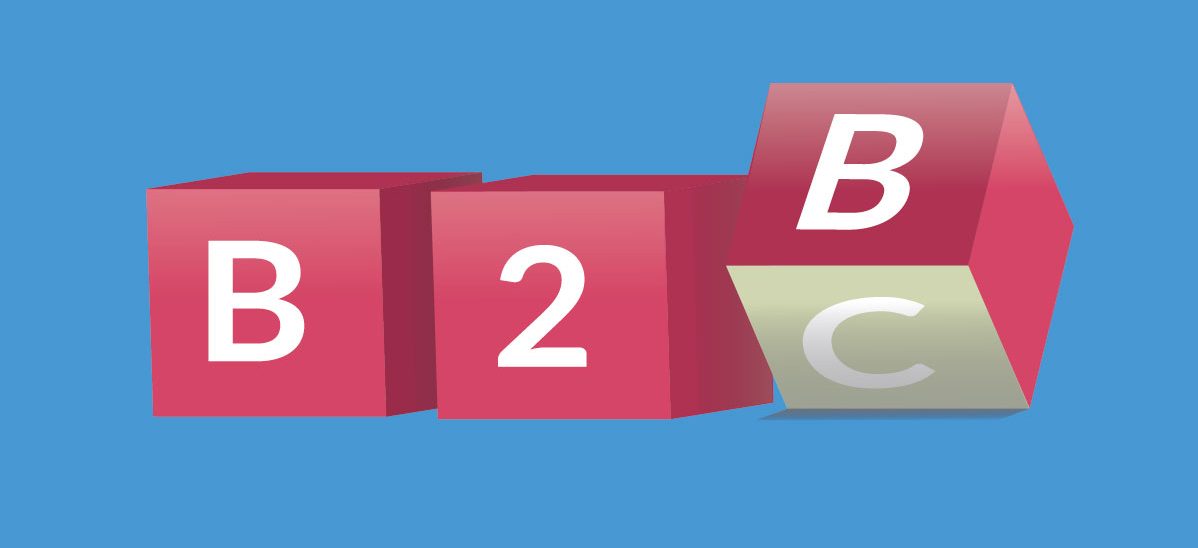B2Bs need to learn from B2Cs to survive post-Covid

Demand Gen Report has revealed that B2B organisations need to improve the buyer experience, emulating B2C companies’ focus on the customer experience for survival.
In the wake of COVID-19, B2B firms are doubling down on buyer experience strategies to fuel growth in a digital-first marketplace, according to a recent survey of marketing professionals conducted by Folloze in partnership with the Demand Gen Report. Overnight, the pandemic raised the bar and put B2B companies on notice that they must deliver the same digitally-rich personalised experiences – the hallmarks of B2C brands such as Starbucks, Airbnb, and Uber – or perish. The research found that marketers expect to play a leading role as digital architects of personalised buyer journeys. But, at the same time, respondents did not feel empowered to deliver on their mandate, signalling the need for a more agile operating model led by frontline marketing teams.
“One of the most interesting trends we saw from the survey was around the continued evolution of marketing’s role, and the further convergence of marketing and sales at critical engagement points with buyers,” said Andrew Gaffney, Editorial Director for Demand Gen Report. “The data underscored the emergence of a ‘frontline marketer,’ who no longer just passes leads over the fence, but works actively with SDRs and account teams on educating members of the buying committing and enabling purchases at all stages, whether a buyer wants to self-navigate or requires support with customised and relevant content.”
The COVID-19 Catalyst that Forever Changed Marketing
COVID-19 accelerated digital selling and upended long-held beliefs about the need for in-person meetings and traditional go-to-market motions. Reflecting these buyer-centric trends, the Folloze-Demand Gen Report Research uncovered four significant themes:
1. B2B firms finally take a page from the B2C playbook to fuel growth: In a post-pandemic marketplace, creating connected, contextual, and personalised digital experiences are core to driving growth. To replicate the success of their B2C marketing counterparts, 99% of respondents unanimously cited the importance of personalised content, messaging, and journeys to engage today’s digital-first buyers.
2. Marketing is the only organisation that can lead the digital-first mandate: The survey found that 50% of marketers believe that a digital-first marketplace will create hybrid GTM models that elevate the marketing function. In this model, marketing will lead and become the architects of digital experiences across the entire buyer journey with support from the direct sales team.
3. An expanded mandate gives rise to the “frontline marketer”: When asked to rank the top three execution challenges associated with buyer engagement, respondents cited delivering a consistent experience (63%), engaging today’s digital-first buyer (57%), and delivering personalisation at scale (49%).
With their new digital-first mandate, marketers must develop a strong execution muscle as they build end-to-end buyer journeys. Unfortunately, the research found that only 25% of respondents felt they could successfully drive growth — and at scale — across every phase of the buyer journey.
A digital-first GTM model shines the spotlight on customer-facing – or frontline – marketing teams in the field. These “frontline marketers” know what their buyers want and how to deliver engaging experiences that build trust and relationships. Yet, successful execution across the entire buyer journey and providing a predictable pipeline will require a fundamentally new operating model that eliminates organisational silos and empowers frontline marketing teams with agile tools and data-driven best practices.
4. Sales Becomes a High-Value Channel: In a digital-first environment where buyers are comfortable with digital self-service and discovery, the sales team becomes one of many channels that marketers will leverage across the entire B2B buyer journey. Within the survey, one-third of respondents said the most significant challenge with their sales counterparts is orchestrating digital campaigns that incorporate the sales team across different stages of the customer lifecycle.
“Marketers have a once-in-a-lifetime opportunity to build the next-gen digital engines of growth,” said Randy Brasche, Vice President of Marketing at Folloze. “At the same time, marketers know they can’t execute against this strategic mandate using the old-school tools and analogue go-to-market models of the past. The findings from our B2B buyer research with the Demand Gen Report underscores the need for marketing to fundamentally rethink their teams and empower frontline marketers that know what their buyers want.”
About the Survey
Demand Gen Report surveyed 104 B2B marketing executives and professionals in April of 2021. The respondents range from Manager (20%), Director (32%), Vice President (16%), and C-level (26%) roles. Respondents work across a variety of industries, including business services/consulting (21%), software/technology (18%), manufacturing (10%), and financial services (9%). Their companies are equally diverse, with annual revenues ranging from under US$100mn (43%) to greater than $10bn (13%).
READ MORE:
- How to successfully reopen your office in a post-Covid-19 world
- Founder Feature: Neil Purcell, founder and CEO, Talent Works
- Ensuring a secure digital transformation journey
- Build these five habits to reduce the risk of ransomware
About Folloze
Folloze builds the leading B2B Buyer Experience Platform. Marketing and revenue teams rely on Folloze to quickly and efficiently deliver engaging, personalised, and data-driven experiences across the entire customer journey. Top B2B brands, including Autodesk, RingCentral, Cisco, and ServiceNow, use Folloze to create amazing digital experiences that help win and keep more customers and fuel long-term growth. To learn more, visit https://www.folloze.com/.
About Demand Gen Report
Demand Gen Report is a targeted online publication that uncovers the strategies and solutions that help companies better align their sales and marketing organisations, and ultimately, drive growth. A vital component of the publication’s editorial coverage focuses on the sales and marketing automation tools that enable companies to measure better and manage their multi-channel demand generation efforts.
For more news from Top Business Tech, don’t forget to subscribe to our daily bulletin!
